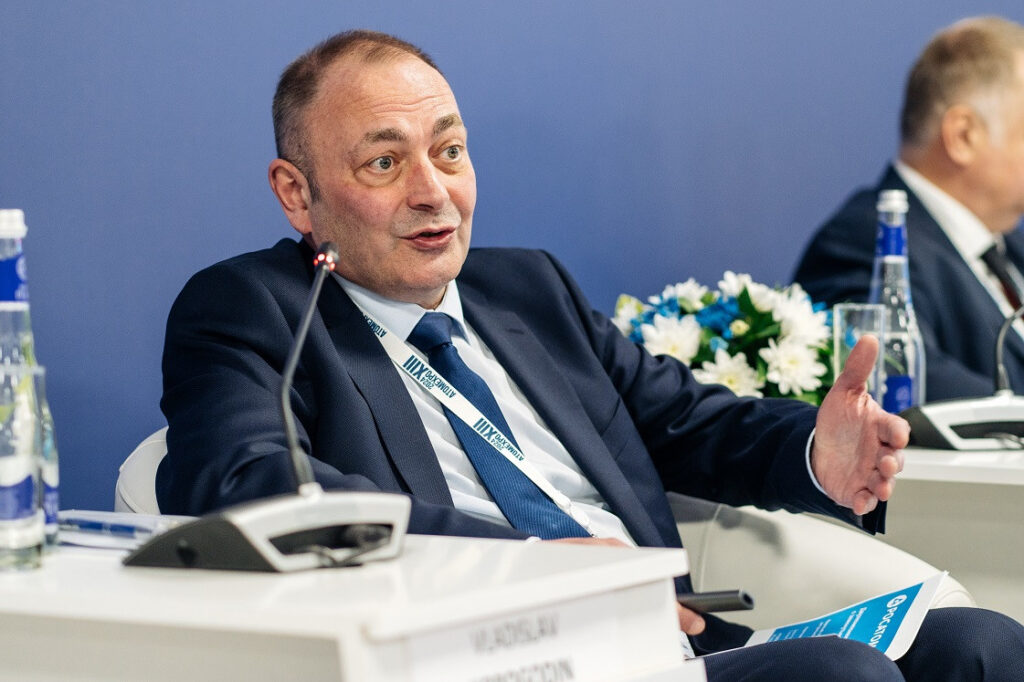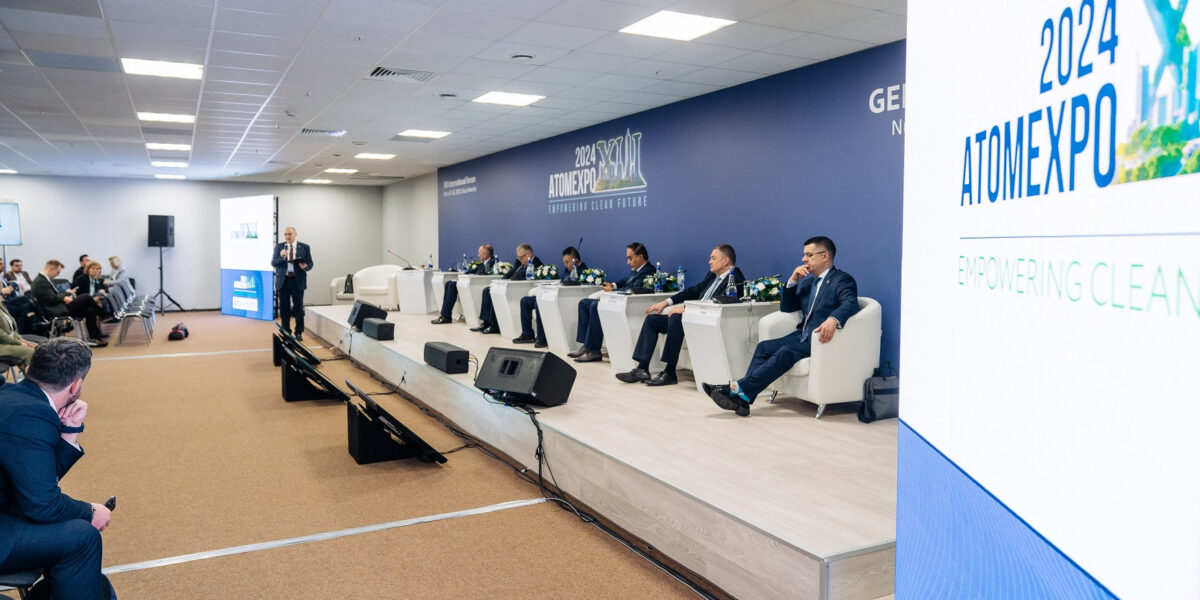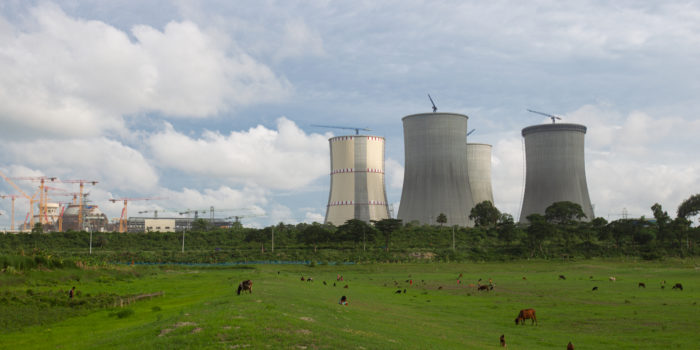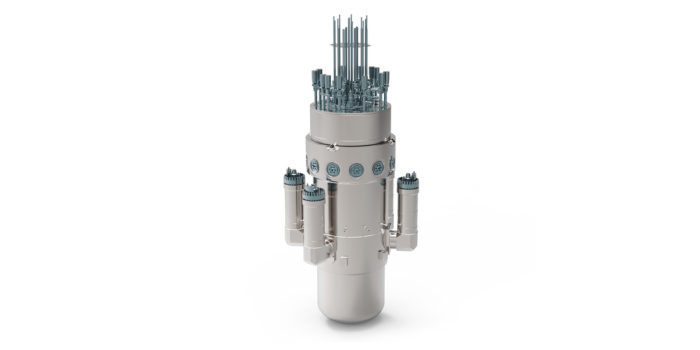On March 25, the 13th International Forum ATOMEXPO-2024 hosted a round table on topic “Development of Nuclear Fuel Cycle (NFC) in Two-Component Energy: Current Challenges and Sustainable Solutions.”
The event brought together experts in the field from Russia, Hungary, China, India, representatives of international companies, scientific, and public organizations. IAEA expert Alexander Bychkov moderated the session.
The key topic of the discussion was the development of the nuclear fuel cycle in the context of generation IV technologies, which create a new image of the future of nuclear energy with no restrictions on the resource base and radioactive waste requiring deep geological disposal.
Experts consider the creation of fast neutron reactors to be the main vector for the development of reactor technologies, and the NFC closure to be the growth vector for the NFC development. Thus, today a nuclear energy system is being created. Within this system, spent nuclear fuel of thermal neutron reactors will be a source for commissioning loads and the first refueling of fast reactors whose operation, in turn, will allow the disposal of long-lived minor actinides generated in the process and reduce the time to reach radiation equivalence with natural uranium source by thousands of times.
“We are creating a two-component nuclear system in Russia that can solve SNF problems and ensure natural uranium saving not only for ourselves, but also for our foreign partners,” said Vladislav Korogodin, Director for the Nuclear Energy Product Line Development of State Atomic Energy Corporation Rosatom. “The ultimate goal of such synergy is sustainable and safe development of nuclear energy worldwide, regardless of the scale of national projects, with the possibility of equal access for everyone to reliable and affordable electricity generated at nuclear power plants,” he added.

Zhang Junxin, Vice President of SNURDC (a division of the Chinese energy corporation SPIC, one of the major electricity generating companies in the world), confirmed the high interest among foreign partners in Russian developments. According to him, ambitious plans of SPIC to grow its nuclear sector (the company plans to commission up to 50 GW of nuclear capacity by 2050) provoke serious thoughts about the provision of resources and management of spent nuclear fuel of those NPPs, and, as a result, foster a high level of interest in the NFC closure developments, which would expand the resource base of nuclear energy, as well as save money on the SNF management.
Andrei Tovstenko, First Deputy Director General for Strategy of TENEX, JSC, introduced at the round table main trends in the NFC development in the context of today’s geopolitical challenges, as well as ways to address the priorities faced by the major players in the NFC market through international cooperation. He stressed out that despite everything Rosatom’s NFC enterprises remain committed to the principle of strict fulfillment of their obligations and ensuring the uninterrupted delivery of uranium products to all their customers with no exception. Today, Rosatom aims to continue and develop cooperation, so it does not only support the production, but it also creates new products making businesses of its customers more efficient and profitable.
Sergey Utkin, head of the Department of IBRAE of the RAS, emphasized the importance of finding new solutions to ensure safety throughout the SNF and RW management cycle. “The life cycle of any NPP is finite, and, being responsible suppliers of these NPPs, we must ensure that our customer gets a comfortable way of managing waste generated as a result of the operation and decommissioning of the NPP,” he said.
In this regard, product area “Balanced NFC” becomes particularly relevant. Its end point is a standard facility designed by IBRAE for ultimate isolation of RW. As part of the Balanced NFC, it ensures the safe disposal of all RW generated by the NPP, with no exception, and does it in a compact and quick way.
Pal Kovacs, Head of the Office of the Director General of the Paks NPP, and Mohamed Chookah, NFC New Businesses Vice President of ENEC, actively participated in the discussion. Experts stated the opinion that external political factors influence the NFC. However, they noted that it is quite stable in its current form and can withstand the arising challenges while maintaining stable deliveries.
“Nuclear energy has always been a bridge for international cooperation. We draw on the rich experience of the countries that are at the forefront of the development of nuclear technology, monitor all changes and this opens up new prospects for us,” said Pal Kovacs. “We are moving gradually towards the closure of the NFC, but we sincerely believe that everything will work out.”
Other panelists pointed out that the principles of sustainable development, ESG agenda and circular economy are becoming increasingly important in the NFC.
The main result of the event was the conclusion that international cooperation in the nuclear fuel cycle is in high demand. Market players advocated the strengthening of the industry and foreign economic relations, which should contribute to both increasing the efficiency of individual business processes and a harmonious solution of national cases.

Reference
Product area of State Corporation Rosatom “Balanced NFC” makes it possible to organize a comprehensive effective management of spent nuclear fuel and its processing products. The solutions forming the basis of the Balanced NFC rely on advanced technologies, including the ability to process SNF with HLW fractionation, the use of plutonium bearing fuel in fast neutron reactors, transmutation of minor actinides, the use of advanced materials and unique structures in transport casks, remote fabrication of FA, etc. Along with the construction and operation of large NPPs and small modular reactors, a balanced NFC will ensure the production of clean energy with no nuclear legacy for future generations.
International Forum ATOMEXPO is one of the main congress and exhibition events of the world nuclear industry organized with the support of Rosatom. It is the largest business and exhibition space where leaders of major industry companies and leading experts discuss challenges of developing nuclear technologies, strengthen partnerships and exchange best practices. The format of the forum includes an exhibition and an extensive business program whose main topics traditionally cover the development of nuclear energy as an environmentally friendly energy source; human capital management; creation of nuclear energy infrastructure; energy financing and investment; development of non-energy nuclear technologies and many others. The Forum traditionally involves signing of cooperation agreements between Russian companies and foreign partners.
Russia is actively developing cooperation with friendly states. Major joint energy projects are in progress. Rosatom and its divisions are actively involved in this work.
As part of demonstrating Rosatom’s commitment to the climate agenda, compensation of the carbon footprint of the XIII International Forum ATOMEXPO-2024 will be ensured using special certificates.





